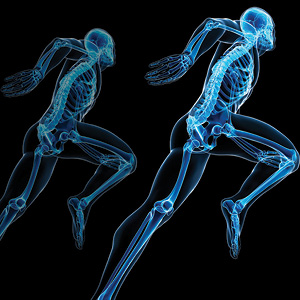On the Move
Leading Research in Mobility
 Mobility, defined as the ability to move or to be moved, represents a fundamental component of the human experience and forms a major outcome of human health. With a variety of research methods, the FHS aims to understand, improve, restore, and/or manage, mobility outcomes that affect people throughout all stages of the life span. The fact that more than 33.1% of Canadians over 65 years of age report a disability associated with decreased mobility, and that these often occur within the contexts of other chronic diseases, highlight the need for this research focus.
Mobility, defined as the ability to move or to be moved, represents a fundamental component of the human experience and forms a major outcome of human health. With a variety of research methods, the FHS aims to understand, improve, restore, and/or manage, mobility outcomes that affect people throughout all stages of the life span. The fact that more than 33.1% of Canadians over 65 years of age report a disability associated with decreased mobility, and that these often occur within the contexts of other chronic diseases, highlight the need for this research focus.
Major components of FHS research and education in the area of mobility reflect the diversity within the faculty more broadly with efforts directed towards the following: quantification of mobility; interventions to improve mobility; assistive technologies to enable mobility; prevention and treatment of the adverse physical and emotional sequelae associated with limited mobility; and social structures or systems that interfere with, or support, mobility. This mission also incorporates many disciplines such as biology, anatomy, exercise physiology, biomechanics, movement neuroscience (motor, cognition, autonomic), sociology, engineering, and public health. Issues related to brain health, such as movement, cardiovascular control, and cognition, and benefits related to exercise training, represent a growing focus.
Researchers in this area also work to create better understandings of how to develop innovative and effective community access and health care policies, as well as the development and transfer of intellectual property to private sector partners. The extremes of mobility research are considered by FHS researchers, encapsulating the range from able-bodied and disabled elite athletes to hospitalized disabled patients at Parkwood Institute with age-, neurologic-, and trauma-induced injuries, to children with congenital neurological and musculoskeletal disorders. Further, professional programs in Physical Therapy, Occupational Therapy, Nursing and Kinesiology target mobility themes.

